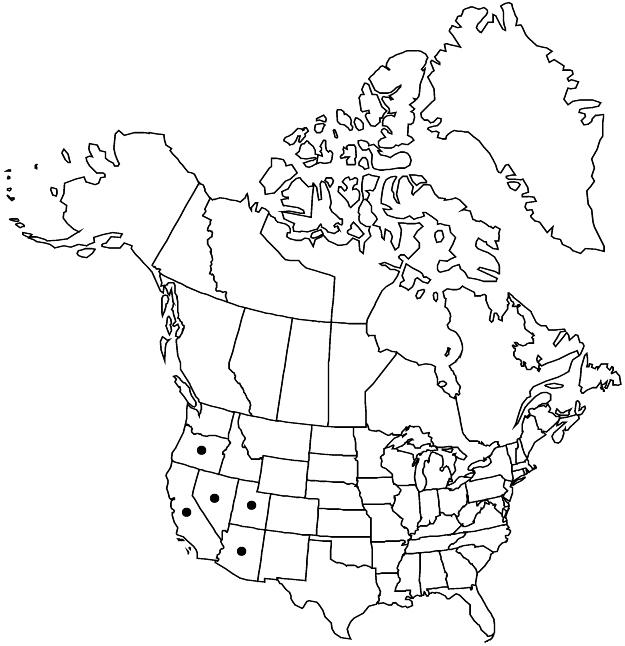familyPolygonaceae
subfamilyPolygonaceae subfam. Eriogonoideae
genusEriogonum
subgenusEriogonum subg. Ganysma
speciesEriogonum nutans
varietyEriogonum nutans var. nutans
Difference between revisions of "Eriogonum nutans var. nutans"
Common names: Dugway wild buckwheat
Endemic
Synonyms: Eriogonum deflexum subsp. ultrum S. Stokes Eriogonum nutans var. brevipedicellatum
Treatment appears in FNA Volume 5. Treatment on page 403.
FNA>Volume Importer |
imported>Volume Importer |
||
| Line 4: | Line 4: | ||
|publications= | |publications= | ||
|common_names=Dugway wild buckwheat | |common_names=Dugway wild buckwheat | ||
| + | |special_status={{Treatment/ID/Special_status | ||
| + | |code=E | ||
| + | |label=Endemic | ||
| + | }} | ||
|basionyms= | |basionyms= | ||
|synonyms={{Treatment/ID/Synonym | |synonyms={{Treatment/ID/Synonym | ||
| Line 50: | Line 54: | ||
|publication title= | |publication title= | ||
|publication year= | |publication year= | ||
| − | |special status= | + | |special status=Endemic |
| − | |source xml=https:// | + | |source xml=https://bitbucket.org/aafc-mbb/fna-data-curation/src/2e0870ddd59836b60bcf96646a41e87ea5a5943a/coarse_grained_fna_xml/V5/V5_832.xml |
|subfamily=Polygonaceae subfam. Eriogonoideae | |subfamily=Polygonaceae subfam. Eriogonoideae | ||
|genus=Eriogonum | |genus=Eriogonum | ||
Latest revision as of 22:14, 5 November 2020
Peduncles glandular. Involucres glandular. 2n = 80.
Phenology: Flowering May–Sep.
Habitat: Sandy flats and slopes, saltbush, greasewood, sagebrush, and mountain mahogany communities, pinyon-juniper woodlands
Elevation: 1200-2300(-2800) m
Distribution

Ariz., Calif., Nev., Oreg., Utah.
Discussion
Variety nutans is rare to infrequent throughout its range. It is most commonly encountered in Nevada and just enters Arizona (Mohave County), California (Mono County), Oregon (Harney County), and western Utah (Beaver, Juab, Millard, Piute, Sanpete, Sevier, and Tooele counties). It has been found east of Wellington, Carbon County, Utah (Ripley & Barneby 8640, CAS, NY), although it has not been seen there since 1947.
Selected References
None.
Lower Taxa
None.